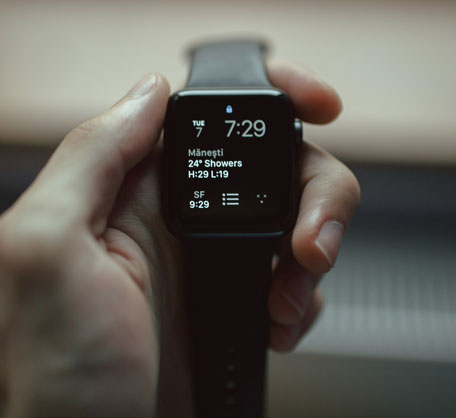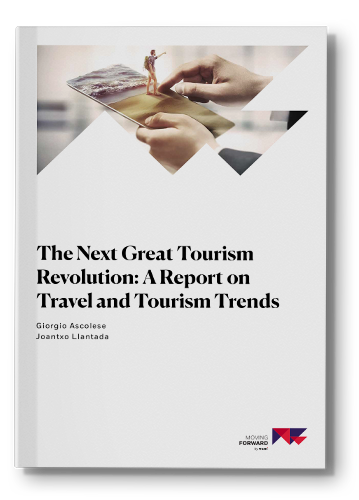They’re creating a mind-reading implant
Don’t you think it’s time to update your ideas?
If the future’s the destination, technology’s the direct route
From Gutenberg's printing press to the telephone line, and of course, the Internet, technology has tended to be the primary driver for the significant changes we've lived over the past millennium. Each of these great inventions has let us explore new paths, and at times, changed the world as we knew it.
Technology is currently evolving at a speed so accelerated that it's causing industries to undergo a sudden metamorphosis, with the tourism industry being one of them. Flying cars, the Hyperloop, space travel-these phenomena that we once considered Science Fiction are now a reality. For us in the tourism industry, these new modes of transportation present an opportunity and a means of arriving at the sector's future. We'll only be able to go farther if we use technology to guide ourselves through creating travel and tourism marketing strategies.
The Internet of Things (IoT) is a technological solution that connects objects through Internet-connected sensors that can exchange information among themselves. The Internet of Things allows you to manage visitor flows, road traffic, reduce accidents, for example. As a driver for improvements across all types of businesses, many organizations are already applying IoT to their marketing strategies to mitigate operational risks, reduce costs, create new earnings channels, boost employee productivity, improve the customer experience, and a lot more.
More than 26.6 billion IoT-powered devices worldwide.

Wearables
Wearables are small connected devices that let us know our physical state, how much we walk, how well we sleep, how many calories we eat, and more. In sum, they gather a large amount of data about us thanks to the Internet of Things. These devices applied to the travel industry let us access valuable customer information to create personalized experiences through Artificial Intelligence.
Affective Computing
The next significant advance in these technologies is affective computing, which is an interdisciplinary science that applies emotional intelligence to devices to achieve a more intimate and personalized communication with a user. According to Javier Hernández, a researcher at the Affective Computing Group at MIT, "if the mobile device detects we're experiencing a bad moment it may filter out negative news alerts or tell us to talk to someone close to us and improve our mood."

Download The Next Great Tourism Revolution: A Report on Travel and Tourism Trends

READ MORE